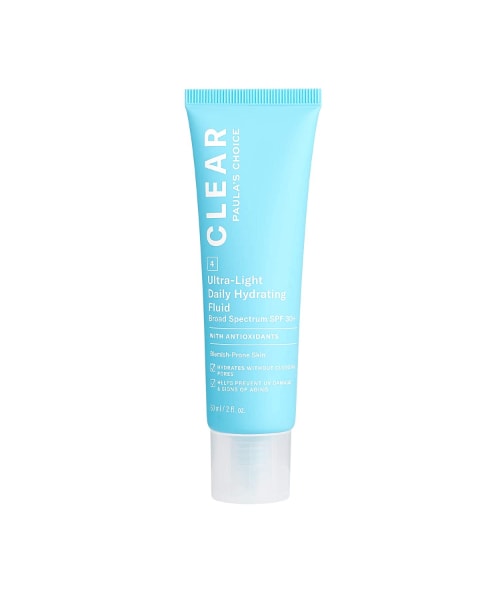Regular sunlight is critical for a variety of hormonal and chemical processes throughout the body. Without the sun life as we know, it would cease to exist.
Many people believe that sunlight exposure or frequent tanning can actually help reduce acne breakouts. In this article, we will break down what role the sun plays in skin health, how sun exposure affects oil production, and how to leverage sunlight for health benefits without risking serious side effects like sun poisoning or skin cancer.
Ultimately some sun exposure can help clear your skin but “frequent tanning” is actually more likely to dry out your skin which ultimately leads to more sebum oil production and more acne breakouts.
Positive Effects of Sunlight
As I previously mentioned the sun is essential for numerous health reasons including improving sleep by regulating your circadian rhythm, lowering blood pressure, promoting mental health, increasing energy levels, and stimulating vitamin D production.
Many people are surprised to learn that almost half the population is deficient in vitamin D. This varies significantly by race, because the darker your skin type typically the more sun exposure you need for your body to produce adequate vitamin D levels. For those who are unable to get regular time in the sun taking a vitamin D supplement is a great way to cover your bases.
Interestingly, studies have shown that sunlight can reduce the number of activated cells during an immune system response. This includes skin conditions like eczema, psoriasis, and acne, as well as more serious inflammation responses like diabetes.
Why Is Skin Better in the Summer?
Many people believe that their skin is more clear in the summer than in the winter. Often times this is correct but it is not necessarily because of the sun.
The chlorine in pools removes excess oil from the skin. If you swim frequently and do not wash off your skin could become overdried, which leads to irritation. To make matters worse once you stop going to the pool your skin will still be producing elevated levels of sebum oil even though the chlorine is no longer keeping your skin dry. Because of this frequent chlorine exposure can actually make your acne worse long term. This leads many people to falsely believe their acne is “worse” in the colder months.
Additionally, exercising and just being outside on warm, sunny days increases your chances of sweating. Sweat naturally clears out the pores and is a great, natural way to reduce acne breakouts.
Negative Effects UV Rays on Skin
While regular sun exposure is vital for optimal health, it is possible to have too much of a good thing. UV rays can cause skin damage if you are overexposed to the sun’s rays. Typically you will know if you are overexposed because you will develop a sunburn. To combat potential UV damage it is highly recommended you wear sunscreen if you plan on spending long periods of time (more than 30 minutes) outside. Most dermatologists recommend wearing sunscreen anytime the UV index is over 2.
Can Sun Poisoning Cause Hyperpigmentation?
While the sun can decrease skin inflammation it can also deepen acne scars and even cause hyperpigmentation and dark spots. UVA and UVB overexposure can also cause “post-inflammatory hyperpigmentation”, which causes acne scarring and patches of sensitive skin to become permanently discolored.
Are Sun Pimples Real?
“Solar comedones” are a common side effect of prolonged sun exposure, radiation, and smoking. Sun comedones can have the appearance of tiny whiteheads or pinkish lesions that look similar to eczema.
Can the Sun Accelerate Aging?
Oxidative stress caused by overexposure to the sun can cause your skin to overproduce melanin which causes certain patches of skin to develop “dark spots”. As a child, this normally appears as freckles but studies have shown over time these “age spots” will increase in size and will stop fading away after the summer months.
How To Treat Acne-Prone Skin in the Sun
The best way to treat acne-prone skin in the sun is to use oil-free sunscreen and moisturizer is order to keep your skin hydrated and prevent the dryness caused by the sun from triggering extra sebum oil production.
Does The Sun Trigger Acne Breakouts?
If you repeatedly overexpose your skin to the sun, it can cause your skin to break out in pimples. When your skin becomes overexposed to the sun it dries out your skin. In the short term drying, your skin reduces oil and can cause acne breakouts to subside. However, when this happens your skin begins producing additional oil to keep your skin from drying out. Eventually, your skin will burn from overexposure to the sun’s UV rays and you will need to stay out of the sun. When you get out of the sun the increased oil production will most likely cause larger acne breakouts than you have ever had before. This process is known as seborrhea and can lead to both acne and fungal acne breakouts.
Does Sunscreen Help Acne?
People with acne are typically afraid to use sunscreen for two reasons. First, many people with oily skin fear that sunscreen will clog their pores and contribute to further acne breakouts. If you choose a comedogenic sunscreen this is actually true. Second is that many people are scared of the chemicals contained in most sunscreen products like oxybenzone which is known to cause a variety of skin inflammation issues. However, if you choose an oil and chemical-free sunscreen you should get the best of both worlds. You can keep your pores clear and not worry about harmful chemicals contacting your skin.
How To Choose The Right Sunscreen For Acne-Prone Skin
One important note is that the “best” possible sunscreen for you depends on your skin type and the type of acne you have. For example, the best sunscreen for fungal acne is different than the best sunscreen for hormonal acne. Check out our top sunscreen picks for acne-prone skin to get an “acne-safe” pick from our team of estheticians, dermatologists, and acne specialists.
GoodGlow’s Top Sunscreen Pick:
Paula’s Choice – CLEAR Ultra-Light Daily Hydrating Fluid SPF 30+
This super-light fluid provides broad-spectrum sun protection and contains excellent antioxidants as well as cell-communicating ingredients that help the skin recover from damage and inflammation. Some of these include soothing green tea extract, nourishing chamomile extract, and skin-strengthening vitamin E, which supports the skin’s environmental defenses.
GoodGlow Score
Skin Type
Ideal for all skin types. Best for those with enlarged pores & blemishes and combination to oily skin
Effective Ingredients
Includes 0.5% Salicylic Acid, Daily Skin Clearing Treatment with Benzoyl Peroxide, and our Anti-Redness Exfoliating Solution with 2% Salicylic Acid (BHA).
Sun Protection
Helps control excess shine, and defends skin against damage caused by UVA & UVB rays.
Clean Ingredients
No fragrance, no parabens, no fluff.
Active Ingredients: Avobenzone 2.0%, Octinoxate 7.50%, Octisalate 5.0%, Octocrylene 2.0% (sunscreen actives). Other Ingredients: Water (Aqua), Glycerin, Silica, Dimethicone, Benzyl Alcohol, Tocopherol, Chamomilla Recutita (Matricaria) Flower Extract, Vitis Vinifera (Grape) Seed Extract, Camellia Sinensis (Green Tea) Leaf Extract, Camellia Oleifera (Green Tea) Leaf Extract, Peucedanum Graveolens (Dill) Extract, Sambucus Nigra (Black Elderberry) Fruit Extract, Avena Sativa (Oat) Bran Extract, Punica Granatum (Pomegranate) Extract, Lycium Barbarum (Goji) Fruit Extract, Hydrogenated Lecithin, Titanium Dioxide, Dimethicone/Vinyl Dimethicone Crosspolymer, Diethylhexyl Syringylidenemalonate, Hydroxyethyl Acrylate/Sodium Acryloyldimethyl Taurate Copolymer, Xanthan Gum, Sodium Carbomer, Sodium Benzoate, Potassium Sorbate, Phenoxyethanol
How To Get Rid of Acne
If you are familiar with our blog you know we recommend a holistic approach to clear acne breakouts. This doesn’t mean taking weird supplements and swearing off any type of medication. It means doing a thorough audit of everything you consume and everything that comes into contact with your skin to identify the most likely triggers of your acne breakouts. Sometimes this means changing your diet, while other times it means taking a prescription recommended by your dermatologist.
Is Sun Exposure Safe on Accutane?
Often times if you are suffering from severe, cystic acne breakouts your dermatologist will recommend taking a prescription vitamin A derivative called isotretinoin commonly referred to as Accutane. Accutane comes with a long list of side effects, one of which is increased sun sensitivity. If you are taking Accutane you should make sure to stay out of the sun whenever possible and make sure you always use 50+ SPF sunscreen if you do go outside.


